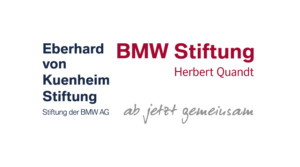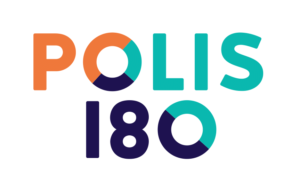QUANTITATIVE RESEARCH AS A SOURCE FOR POLICY-MAKING
Dalia and Polis180, supported by the BMW Foundation Herbert Quandt, organised a workshop about digital-collaborative research and foreign policy. The goal was to evaluate, the opportunities of using survey methodologies and large scale survey systems to collect sustainable and reliable data about the perception of foreign policy together with experts from Dalia and Polis180 as well as other participants.
Today, an organization’s as well as a states ability to keep a pulse on important issues and anticipate the needs of the public through data-driven insights is nearly a prerequisite for success. However, policy-making seems to be a field resistant to technological change. Policy decisions that shape our daily lives continue to rely on the opinions of a small circle of political elites, instead of on data-driven insights about the people they affect.
The main issues identified fell into three categories: Digitalization, Europe and Peace & Security. For each topic the workshop participants designed a research question and brainstormed survey ideas in order to answer these questions and inform policy makers.
Interested in this project?
Reach out to Daniel (daniel.hardegger@polis180.org) for more information and become a member of Polis180, the grassroots think-tank on foreign policy.

Digitalization and Daily Life
The Digitalization Program is a newly established program of Polis180 which allowed to start the workshop with an open discussion right at the beginning. Various new technologies, from automation and machines, to digitally-enabled consumer products, are rapidly transforming our way of life. The digitalization working group posed the research question “How does digitalization affect people’s lives?” The group saw three areas as crucial: Work, Politics and Education.
Under the “work” section, the group formed hypotheses and wrote a survey aimed at capturing how people perceive technology impacting their workplace, and whether this is a good or a bad thing. Questions are aimed at the perception of their job security, use of technology at their workplace and which jobs they think can be replaced by robots or computers.
Under the “politics” section, the group wanted to find out whether digital-online tools, such as social media and e-voting, increase or decrease their interest in politics. Do citizens’ become less political and more consumerist, caring more about Pokemon Go than about their local elections, or do such tools connect more people around the globe and enable more forms of political participation? The group came up with a study design to find this out.
Under the “education” section, the group wanted to know if people make even use of the massive availability of opportunities to learn online, or whether the traditional classroom model is still the norm. While the group worked on a few questions, for example the more humorous one whether people think their teacher can be replaced by a robot, the comprehensive study design would still need to be developed.
The Peoples View on the EU
The Europe working group started with a short overview of the past and current content of Polis180’s European Union Program. Afterwards, the discussion was opened and focused on identifying topics of interest for the upcoming research project. The main topics were: EU Populism, EU Integration, Digital Activism, the Right to Vote and Residency, the Brexit follow-up measures, and the possible EU Army. It was decided that a survey about the future of the EU after a possible Brexit would create the most valuable feedback as it allows to combine questions about individual perceptions of the EU and knowledge question about the role and capabilities of the EU.
However, in order not to have another “EU expert survey”, the level of questions about the EU would be set rather low in order to integrate and include as many participants as possible. The geographical focus depends on the goal of the survey. It could focus on regions/countries within Europe, including Great Britain itself, which are the most affected by a possible Brexit. If the survey would be repeated regularly, it would be possible to recognise shifts in the perception and maybe connect them to local, national, European as well as international developments.
The questions can be separated into two groups. The first group is about the current perception of the EU and a possible Brexit. This includes among others specific questions about the availability of information, about the status of the EU as well as the maybe started negotiations or the influence of different stakeholders on the debate and votings.
The second group would focus on the individual outlook about the EU, Great Britain as well the relationship between the EU and Great Britain. Connected with the first group of question, it would be feasible to compare the current perception with the outlook. The next step would be to develop this questionnaire and ensure the connections between different groups of questions as well as decide about the regional (and social) focus of the survey.
Social Security and Empowerment
The Peace and Security group first reflected the current projects of Polis’ Peace and Security Program including its various task forces. Afterwards, a discussion was started about social security, first about “winners” and “losers” of globalisation and later about the social welfare, job opportunities and wealth distribution. This lead to discussions about social security, social empowerment and their connection to peace and prosperity. However, a survey about social security and social empowerment is challenging due to the interconnection of influences and local, regional and national differences. This contradicts the goal of a survey to have easy and clear answers for the participants.
To solve the geographical challenge and to to create sustainable as well as feasible data, it is required to set up a survey that compares specific regions which have the same basic features (e.g. industrial regions, countrysides, small cities, metropolitan region’s’, unemployment rate etc.) but also have features which separates them from each other (e.g. history of im- and emigration, economic development programs, legal frameworks etc). Meanwhile, the survey would first collect personal data of the participants, like income, family situation, age, education, job, and later ask them about their perception of job opportunities, social empowerment and political participation as well as related questions.
This allows to connect the results of the survey, which focuses on the perception of the people of their current situation, to the ‘real’ situation. It allows to see if there are economic and educational programs, legal frameworks or political systems/mechanisms which do not only have a real impact but whose impact is also positively perceived by the people themselves. The same applies for mechanisms or initiatives which are not seen as beneficial by the people or which are being viewed differently compared to their real impact (or nonimpact). The goal would be to identify these factors and develop programs to export these into other regions.



